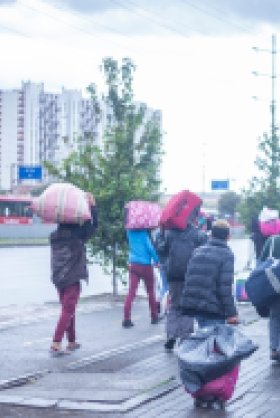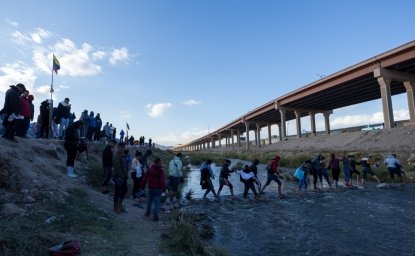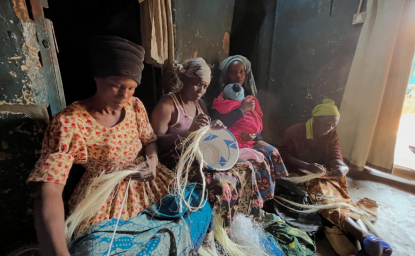Venezuelan Migrants Under COVID-19: Managing South America’s Pandemic Amid a Migration Crisis


In a new report from the Latin American Program, “Venezuelan Migrants under COVID-19: Managing South America’s Pandemic Amid a Migration Crisis,” Jacqueline Mazza details the ways six South American countries have endeavored to include Venezuelan migrants in their response to the health and economic crises resulting from the coronavirus.
Surveying Colombia, Peru, Ecuador, Brazil, Chile, and Argentina—the top recipients of Venezuelan migrant flows—Mazza underscores the great variability in coverage for migrants in national pandemic assistance plans that included cash transfers, health care, housing, or job assistance. Acknowledging the major fiscal and operational constraints on governments as well as the speed with which programs were put into place, Mazza nonetheless argues that failure to include migrants in many forms of assistance undermined the region’s ability to lockdown safely and prevent the spread of the virus. She notes that Venezuelan migrants have been particularly disadvantaged during the pandemic due to their concentration in informal work and precarious housing, problems shared by the poor throughout the region. She also notes that return migrants to Venezuela represent less than two percent of the Venezuelans living in South America, with the largest return migration occurring in March 2020.
Mazza argues that the success of COVID-adapted economic recovery in the region will depend on more fully incorporating today’s historically high migrant populations. The report recommends rethinking the region’s growth strategy to build stronger internal markets and enable a more efficient use of labor market skills across borders. Mazza also calls on the international community to provide more generous assistance to migrant-receiving nations in the hemisphere, noting that donors funded only 30 percent of the needs identified by the UNHCR in 2020.
Author


Latin America Program
The Wilson Center’s prestigious Latin America Program provides non-partisan expertise to a broad community of decision makers in the United States and Latin America on critical policy issues facing the Hemisphere. The Program provides insightful and actionable research for policymakers, private sector leaders, journalists, and public intellectuals in the United States and Latin America. To bridge the gap between scholarship and policy action, it fosters new inquiry, sponsors high-level public and private meetings among multiple stakeholders, and explores policy options to improve outcomes for citizens throughout the Americas. Drawing on the Wilson Center’s strength as the nation’s key non-partisan policy forum, the Program serves as a trusted source of analysis and a vital point of contact between the worlds of scholarship and action. Read more




